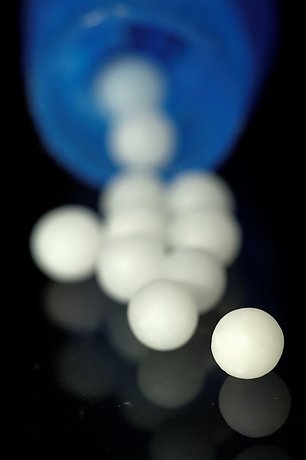Patients should be asked whether they regularly take dietary supplements or herbal medicines, as some of these may have serious interactions with prescription medications.
introduction
In the UK, herbal remedies and dietary supplements are not licensed as medicines and are widely available without a prescription. Surveys in the US suggest that over half of people with chronic illness or cancer use herbal remedies or dietary supplements (Miller et al., 2008), and nearly one in five take these products alongside prescription medication (Gardiner et al., 2006).
advice
The Medicines and Healthcare products Regulatory Agency produces advice for consumers on the safe use of herbal medicines ( tinyurl.com/MHRA-herbal ).
The National Institute for Health and Care Excellence (2009) guidelines on depression note that although there is some evidence to suggest that St. John’s Wort may be effective for mild or moderate depression, doctors should:
- It is not prescribed or recommended for use due to uncertainty about appropriate dosage, duration of effect, variability in formulation properties, and the potential for significant interactions with other drugs.
- Advise patients with depression about the different potencies of available preparations and the potential serious interactions of St. John’s Wort with other medications.
New evidence
In a systematic review, Tsai et al (2012) searched for scientific articles from 2000 to 2010 that documented interactions and contraindications between prescription drugs and herbal medicines or dietary supplements.
The review included 54 review articles, 16 clinical trials, 9 observational studies, and 6 animal studies. After excluding duplicates and products not recommended for human use, 1,491 unique interactions involving 509 drugs were identified. Overall, 100 drugs acted on the central nervous system, 90 on the cardiovascular system, and 75 treated infections.
The most common interactions were with warfarin (105 cases), followed by insulin (41 cases), aspirin (36 cases), and digoxin (32 cases). The herbal remedies that most frequently interacted with drugs were St. John’s wort (147 cases), ginkgo biloba (51 cases), and kava (41 cases). The dietary supplements that most frequently interacted with drugs were magnesium (102 cases), calcium (75 cases), iron (71 cases), vitamin A (43 cases), and melatonin (30 cases).
Many of the supplements with a high number of interactions appear to have a general class effect on the interactions that are classified as severe. For example, digitalis had severe interactions with several thiazides and thiazide diuretics, kava had interactions with sedative antihistamines and benzodiazepines, and St. John’s wort had interactions with a wide range of drug classes, including antidepressants, chemotherapy drugs, sex hormones, and cardiovascular drugs.
The authors noted that health care professionals may need to be aware of the most common interactions to prevent adverse events, especially for patients taking medications that act on the central nervous system or cardiovascular system.
Eyes on Evidence (Ju
ne, 2013, Bulletin produced by the National Institute for Health and Care Excellence. Reprinted with permission.
Lynne Kincaid is a medical writer at the National Institute for Health and Care Assessment.
Miller M et al. (2008) Dietary supplement use in people with cancer and other chronic diseases: a population-based study. Journal of the American Dietetic Association; 108: 3, 483-494.
National Institute for Health and Technology Assessment (2009) Adult depression: Treating and managing depression in adults. London: NICE.
Tsai H et al. (2012) Evaluation of documented drug interactions and contraindications associated with herbal and dietary supplements: a systematic literature review. International Journal of Clinical Practice; 66: 11, 1056-1078.

